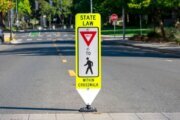If you were born in 1961, you might be thinking of retirement. As you contemplate when to step away from the workforce, you’ll want to consider Social Security benefits, your current job and lifestyle, and your long-term goals. After you carefully review your finances and priorities, you may find you’re ready to retire — or you could choose to work longer.
Here are some factors to consider if you were born in 1961 and are thinking of retirement:
— Your full retirement age for Social Security benefits.
— Your health care coverage and needs.
— What you want to do in retirement.
— What you will miss by retiring now.
— How to find the best retirement age.
[READ: How to Retire at 65 With $2 Million]
Your Full Retirement Age for Social Security Benefits
The Social Security Administration sets a timeline for retiree benefits based on your birth year. If you were born in 1961, your full retirement age is 67. At that point, you’ll be eligible for your full benefit amount. Your full benefit amount is based on the number of years you worked and paid taxes. It is calculated by entering your highest 35 years of earnings into a formula. If you retire at age 67, and your full benefit amount is $2,000, you can expect to receive that amount every month.
You also have the option of retiring as early as age 62 with the understanding that you’ll receive a reduced benefit amount. “If you jump in early, your monthly Social Security check will be about 30% less than if you waited until full retirement age,” says Jeff Rose, a financial planner and founder of GoodFinancialCents.com in Carbondale, Illinois. If your full retirement benefit amount would be $2,000, retiring at age 62 could yield just $1,400 a month from Social Security.
On the other hand, if you decide to wait, your benefit amount will go up every year after you turn 67 until you reach age 70. For individuals born in 1961, “if they can hold off until age 70, their benefit increases by 8% each year they wait past their full retirement age, thanks to the delayed retirement credits,” Rose says. Waiting until age 68 could lead to an increase of $160 for a $2,000 benefit, which would amount to a monthly benefits check of $2,160.
[See: 10 Ways to Increase Your Social Security Payments.]
Your Health Care Coverage and Needs
Medicare is available for individuals who qualify starting at age 65. If you were born in 1961 and are in your early 60s, you won’t be able to count on Medicare coverage for a few more years. “If someone retires at 62, they’ll need a plan for health insurance in the interim,” Rose says.
You may have a spouse who is still working and has health insurance through their employer that could provide coverage for you as well. Or you might look into purchasing your own health insurance for the years leading up to Medicare eligibility. “If you are about to lose your employer’s coverage because of retirement, understand options through your state’s health care exchange,” says Geoffrey Schaefer, a wealth advisor at Intergy Private Wealth in Colorado Springs, Colorado. “Government subsidies exist, and perhaps a portion of your premiums could be paid between ages 62 and 65.”
What You Want to Do in Retirement
You might have a very long — or very short — bucket list, or no big plans. “With no work, 30 to 50 hours a week will be opened to you,” Schaefer says. This could mean you have a lot of time to fill, especially if you’re looking for inexpensive outings. It may be helpful to sit down and make a list (or review the one you have) and think about when you would do those activities. You might find that your days will fill up quickly with a new routine, or that you should make more plans.
As you map out your retirement years, remember that many items include a cost. “Traveling, hobbies and other activities can impact how far savings will stretch,” Rose says. You may have to prioritize your trips and choose just one hobby to start.
What You Will Miss by Retiring Now
Daily interactions in the office could be healthy for your well-being, especially if you enjoy socializing. “Some find purpose and satisfaction in their jobs,” says Amber Dixon, CEO of Elderly Guides in Chicago. You could get lonely spending your days at home without the buzz of the office.
If you tap retirement funds early, you may also miss out on some investment growth. Rather than continuing to save and invest, if you step away from work, you’ll begin spending the money sooner.
[READ: 7 Best Funds for Retirement.]
How to Find the Best Retirement Age
If you’ve recently turned 62, you might be wondering what age you should transition to retirement and enjoy more leisure time. While it may be tempting to leave the workforce, there could be value in some self-evaluation. “When you look at savings, investments, Social Security and maybe pensions, and you can realistically replicate your cost of living, you have the ability to retire,” Schaefer says. “At that point, it is 100% a personal decision.”
Money matters aside, you may find it helpful to talk to family members and close friends about your decision. You might find that your adult children are looking forward to spending more time with you, or that you could be more active in the lives of your grandchildren. If you have friends who are also thinking about retirement, you could plan your journeys together and set up weekly activities to stay in touch. Once you feel settled about your retirement lifestyle, you can set a date for the stage to begin.
More from U.S. News
Industries With the Best Retirement Benefits
10 Retirement Rites of Passage
When Can I Retire if I Was Born in 1961? originally appeared on usnews.com







